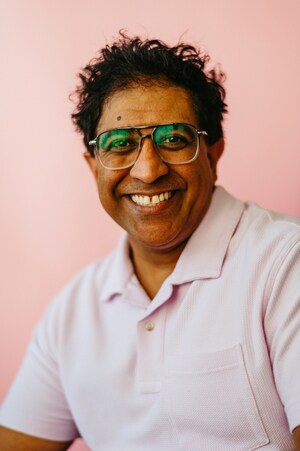
SAN FRANCISCO, Oct. 7, 2025 /PRNewswire/ -- Hopelab's latest research report, A Place to be Seen: Mental Health and Online Support Among Southern Youth in the U.S., examines how young people in the South navigate mental health and digital spaces differently than their peers in other U.S. regions. The research reveals that while Southern young people experience similar rates of depression and anxiety as their peers in other parts of the country, they face distinct barriers to accessing support and view emerging technologies, such as AI, with greater skepticism.
The study surveyed 1,274 young people across the United States, with 36% living in the South. Developed using youth co-design practices, the report centers the voices and experiences of Southern young people through co-distillation interviews that helped interpret and contextualize the findings.
"Southern young people face the same mental health challenges as their peers nationwide, but navigate additional barriers, from stigma to skepticism about emerging technologies," said Mike Parent, Ph.D., Research Principal at Hopelab. "At the same time, they're showing us how vital digital spaces can be for connection and community, especially when local resources fall short. One-size-fits-all approaches to youth mental health simply don't work."
Key Research Findings
Despite reporting comparable mental health challenges, Southern young people are less likely to search for mental health information online, pointing to ongoing barriers, including stigma around acknowledging symptoms and reluctance to seek help. This gap persists even as digital resources are available and central to youth mental health support.
The research also found that Southern young people describe the importance of social media platforms distinctly, emphasizing their role in building community, finding relatable content, and seeking important information, particularly in environments where these opportunities are limited in offline spaces. While online communities offer important sources of connection and support for young people across all U.S. regions, Southern young people describe these digital spaces as especially vital.
Additionally, Southern young people expressed greater skepticism about AI's future impact on their lives, showing less optimism than their peers in other regions, who more often view artificial intelligence as a positive force.
Centering Youth Experiences
The report amplifies the experiences of young people who are often overlooked in national conversations about youth mental health.
"Everyone struggles. I believe that it's not just one group of people who are struggling, but there are a lot of people who are struggling. It's a problem that needs to be solved as a whole community together," shared a Black, straight cisgender young man who participated in the study.
Southern young people emphasized that meaningful support should focus on shared experiences rather than regional stereotypes. They also called for greater openness from older adults.
"Older adults need to be more open-minded about things and more focused on helping the people around them instead of judging them. Older people are more close-minded than younger people because they've grown up around that mentality for so long … It's much harder for them to really listen," explained a white, lesbian, genderfluid young person.
The Need for Nuanced Understanding
Young people are growing up in an era where digital tools and social platforms significantly influence how they communicate, learn, and thrive. For young people in the South, these digital spaces interact with unique cultural and structural factors that influence their mental health and well-being. Online environments can serve as lifelines, offering connection, support, and information, while also reflecting and sometimes intensifying broader challenges. The research underscores the importance of acknowledging regional differences among young people in the United States and centering the voices of young people who are often overlooked in national conversations. By grounding solutions in evidence rather than bias and regional stereotypes, we can build more effective support systems for the mental health and well-being of young people.
Read the full report at hopelab.org/stories/southern-youth .
About Hopelab
Hopelab envisions a future where young people have equitable opportunities to live joyful and purposeful lives. As a researcher, investor, and convener, Hopelab is dedicated to fostering greater mental health and well-being outcomes for Brown, Black, and Queer young people. Learn more at hopelab.org.
SOURCE Hopelab








Share this article